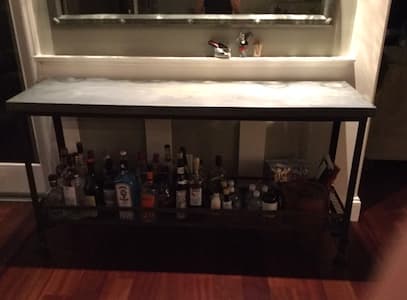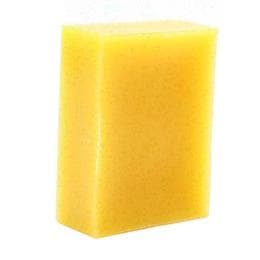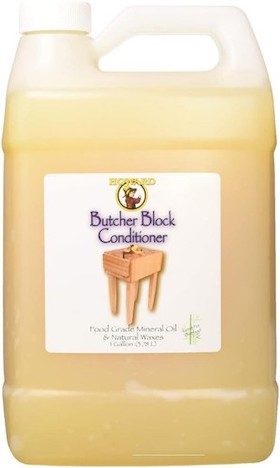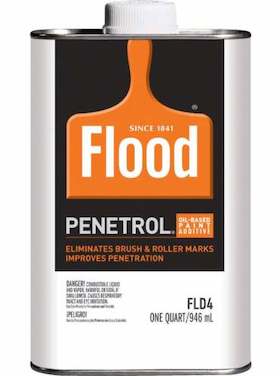
Curated with aloha by
Ted Mooney, P.E. RET

The authoritative public forum
for Metal Finishing 1989-2025

-----
Mild Steel Countertop Finishing
Q. I am in the process of designing/specifying a custom home for which the countertops are desired to be mild steel with an "oil-rubbed"- or "blued"-type finish. The countertops are to be welded flush and continuous on site, so the pieces are going to be much too large and unwieldy to be subjected to any sort of immersive finishing process. I have been doing some research, and have discovered that the two main options that appear to be available are:
1) torch heating and rubbing the steel with mineral oil to achieve a "blued"-type finish, and,
2) Chemical liquid cold-blueing
My questions are as follows:
A) What are the durability issues related to these finishes?
B) What are the maintenance issues related to these finishes?
C) What (if any) are the toxicity issues related to using these finishes on a food preparation surface?
Any help would be appreciated.
Thanks in advance.
Gregory W. [last name deleted for privacy by Editor]architect - Seattle, Washington
2003
The basic problem, either way, is that steel rusts -- almost instantly. When you look at a blued rifle barrel, it is only the oil that keeps it from rusting. Strip the oil and it will flash rust in 15 minutes. So the only way to keep the countertop from rusting is to clear coat it or keep it covered with a thin coat of some kind of wax or oil.
The steel itself poses no hazard; people use rusty frying pans and knives all the time. But what kind of oil, other than food-grade, would be safe?
I think this project justifies a mock-up where you lube a test plate with olive oil^mineral oil and see what happens after you wash it with detergent, cut tomatoes on it, , etc., before committing to building it. An alternative might be color oxided stainless steel.

Ted Mooney, P.E.
Striving to live Aloha
finishing.com - Pine Beach, New Jersey
A. I am planning on doing the same in my home. I have some experience with steel. Mineral oil is non-toxic and often recommended to treat cutting boards, butcher block tables, etc. .
I would not use olive oil ... I question if it will eventually go rancid.
I plan on bluing like you suggested, heat and oil and then coating it with beeswax,.
hand rubbing it or a polisher will do too. It will give a high sheen finish but it will maintain the anti-rust aspect. Yes it will require maintenance but not very often I believe. Good luck!
- Belgrade, Montana
March 2, 2010
Q. Great to hear your suggestions. Any of you who have treated their mild steel counter with beeswax or another wax, how has the result worked out? Have you had to retouch it often? And what was your chosen method of application? Soften then rub on, or melt and drip or rub on cold? Thank you for your advice!
Chris Geisler- Vancouver, BC, Canada
January 31, 2013
Q. I am planning to install a 1/4" plate steel (raw) countertop in a kitchen and I am wondering what would be the best protection for it. I am not concerned with patina such as water rings from cups etc. (My wife is though), I am more concerned with rust and food preparation. Should I wax or oil or clear coat? This is a similar installation.

photo from website of Maryland Iron, Inc. in Glen Burnie, MD.
contractor - Philadelphia, Pennsylvania, USA
May 18, 2013
A. Neither wax nor oil will hold up very long, maybe a matter of days or weeks.
You could use clear polyurethane applied over a scrupulously clean surface. Barring damage from sharp tools, it might last a year or two before needing to be redone.

Jeffrey Holmes, CEF
Spartanburg, South Carolina
Q. This webpage suggests Penetrol will work. Opinions?
www.instructables.com/id/Preserve-the-Beauty-of-Raw-or-Rusted-Steel-Iron-/
- Hulbert, Oklahoma, USA
October 14, 2013
A. Hi Leslie. The list of proprietary coatings that might "work" is extensive. We have many threads on line here on the general topic of protecting bare steel or rusted steel from ongoing corrosion while preserving the "look", including "How to Rust Steel On Purpose", "Clear coating to seal a rust patina finish on metal", "1001 Q&As on Corten Rusted Steel", "How to accelerate rust on steel" -- and you can search our site for those topics.
But personally I would not put a proprietary product with naptha, stoddard solvent, etc. on a food countertop. Good luck.
Unfortunately, the problem remains that metal, with the exception of institutional-looking stainless steel, is not a good countertop material.
Regards,

Ted Mooney, P.E.
Striving to live Aloha
finishing.com - Pine Beach, New Jersey
A. What about seasoning the steel? I have a piece of 1/4" plate steel that I seasoned for use as a pizza steel - no rust so far. I used flax seed oil in thin coats on both sides of the steel, placed in my oven at the highest heat level for an hour or two. I did this numerous times, probably nine or ten. Same technique as my carbon steel fry pans.
Might be a problem finding an oven large enough for your purposes though...
- Winnipeg Manitoba Canada
March 5, 2016
Q. I want to redesign my kitchen using raw steel countertops and I just watched an episode on HGTV where after they heated the steel they immediately used peanut oil to achieve and keep the blue tone. Has anyone else tried this method?
Tamara Lewiscleaning & staging - Belvidere Illinois USA
March 24, 2016
Permanent protection for old steel display table being used now for a bar
Q. I have an old rolling table with a 60" x 18" steel top that I am using as a bar. The top rusts from sweating glasses and discolors from some alcohol! I have cleaned it successfully with Wink Rust Stain Remover (some unidentified acid).

I would like to coat it with a protective coat such as a spray lacquer that could be easily wiped clean. In the past I have tried waxing the top but that only lasts for a bit. It is now completely free of wax. What is my longest lasting choice? There will always be a splash or sweating glass to contend with. I haven't tried the spray poly or lacquer yet because if it didn't work it would be a mess to remove! I'm not looking for a professional or send-it-away solution. I have seen Everclear spray from Rotometals, but it's price is a tad steep, however, if that's the way to go, so be it. Any other suggestions would be very appreciated.
Susan Marchioni- Beaufort, south Carolina, US
June 5, 2020
A. Hi Susan. There are 101 or more different brands of clearcoats, and we've learned from 31 years of this that unfortunately we can't open the floor on this 'no registration required' forum to claims that the secret ingredients of brand X are better than those of brand Y (why?) -- but we're happy to discuss principals.
The problems you are fighting include both the fact that steel is very rust prone and that proper pretreatment will not be done because you are trying to preserve a raw untreated look, so you won't be phosphatizing, passivating, and priming. It is relatively easy to have a pinhole in any clearcoat whether sprayed or brushed; and in the case of otherwise unprotected rust-prone steel, a pinhole is a bigger problem than on aluminum or on galvanizing or on a prepared and painted surface. So my general suggestion would be two (or more) coats of a relatively thin lacquer, poly, or clearcoat. Everbrite [a finishing.com supporting advertiser] is one respected brand of clearcoat for steel, but I don't claim that there are no others.
Regards,

Ted Mooney, P.E. RET
Striving to live Aloha
finishing.com - Pine Beach, New Jersey
June 2020
Q, A, or Comment on THIS thread -or- Start a NEW Thread


